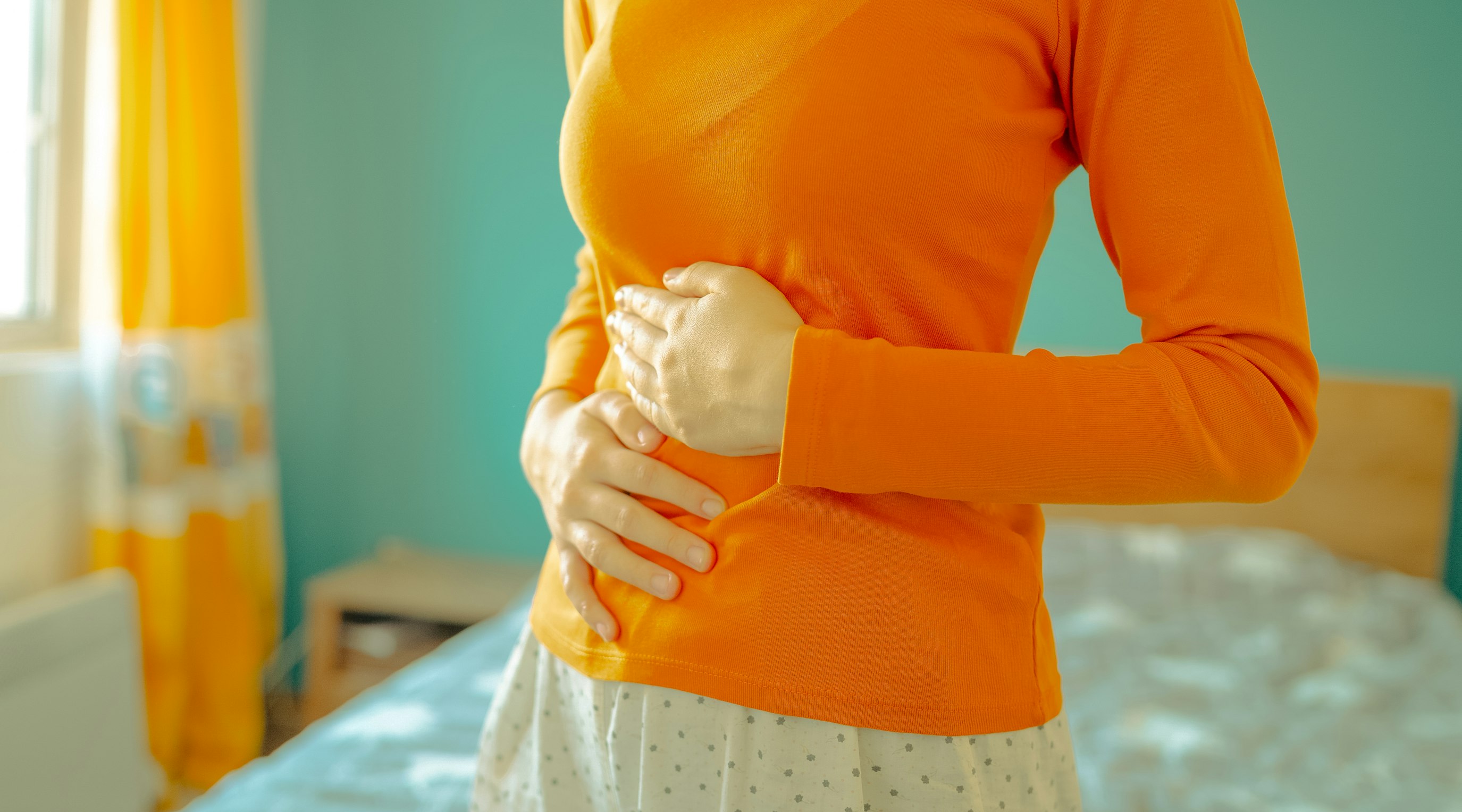Endometriosis is a painful disorder that can lead to a range of symptoms. Roughly 10% of women struggle with endometriosis. Common symptoms include pain, fatigue, and inflammation, and these can vary from mild to severe.
Contents
What is endometriosis?
Endometriosis is an autoimmune disorder where cell tissue (similar to the endometrium or tissue that normally lines inner uterus walls) grows outside the uterus. The endometrial-like tissue thickens, breaks down and bleeds with each menstrual cycle just as the endometrial lining does.
However, this tissue cannot exit the body as the normal endometrial lining does during menstruation, so it becomes trapped within the body. This disorder commonly involves ovaries, fallopian tubes, and the pelvis. Heavy bleeding and fertility issues are also associated with endometriosis.
The role of CBD in managing endometriosis symptoms
CBD has been shown to have the potential to help women who suffer from endometriosis manage symptoms of pain, cramping and discomfort.
Patients should consult their medical cannabis doctor and/or their general practitioner (GP) to consider specific factors impacting their health, and potential interactions with CBD and any other medication they are taking. Healthcare professionals can provide advice to women about the most effective ways to administer and dose CBD to potentially help manage endometriosis symptoms.
It is important to take CBD consistently for roughly a month (or more) in order to assess its effects accurately. It is essential to track your daily intake as well as the severity and type of endometriosis symptoms. Starting a wellness journal is recommended for all medicinal cannabis patients, as this will give you more specific insight into how your treatment plan is helping manage symptoms over a longer period.
Understanding CBD dosage for endometriosis
Make sure you note the strength of the specific CBD oil or product before taking a dose. You will want to determine the amount of CBD in each application to help fine tune your treatment as time goes on.
While we cannot give specific dosage suggestions here, to potentially reduce inflammation and pain associated with endometriosis, you can have a chat with your prescribing doctor. This is the only way to make sure you are receiving the correct dosage size for your condition.
Factors affecting CBD dosage
Your height, weight, personal tolerance to CBD, and general health condition are key factors affecting bioavailability or the rate at which CBD enters and circulates throughout the body. The amount of food you have eaten and how much water you have drank in the lead up to taking your dose of CBD will also affect its absorption.
Recommended starting dosage
CBD oil is most often titrated, where the patient starts with a low dose and slowly increases it until they experience the desired effects. This is because everyone will respond at least slightly differently to CBD, and the best result is usually found with a tailored approach.
When it comes to specific dosage sizing, that is something that will be best discussed with your prescribing doctor.
CBD administration methods
Most patients take CBD oil sublingually, or by placing several drops beneath the tongue. Other methods of using CBD include topical creams, transdermal patches, inhalation using a CBD vape, and CBD-infused gummies.
Sublingual application
CBD oil offers quick relief and an easy way to monitor dosing amounts. Drops can be added under the tongue and held there for around 60 to 90 seconds, where the oil is absorbed through the sublingual gland into the bloodstream. This method allows for faster absorption (when compared to oral ingestion), avoids first-pass metabolism in the liver, and can be more effective for conditions such as anxiety or pain relief as the effects are felt within 20 to 30 minutes.
Keep in mind that, when added to food or drink, the oil will pass through the digestive system and take longer for the effects to take hold.
Inhalation
CBD vaping is a popular mode of delivery as the effects can be noticed within a few minutes, reach a high concentration in about 30 minutes, and remain active for several hours. Inhalation offers an easy way to dose and consume, and it is somewhat discreet.
Topical application
Topical creams are a good choice for those patients who want to target specific areas of the body. CBD cream can be applied directly to the skin, allowing for localised relief in muscles or joints, without affecting the rest of the body.
Risks and side effects of CBD administration
CBD has been shown to be generally very well tolerated, with minimal side effects reported. Some of the most common side effects include dry mouth, low blood pressure, and drowsiness. Higher doses may also cause dizziness, gastrointestinal issues, and changes in appetite
It is also important to note that CBD can potentially interact with certain medications. Always speak to a doctor that is experienced in prescribing medicinal cannabis products before taking any CBD products.
CBD Dosage for specific endometriosis symptoms
Specific dosage sizes are something that must be discussed with your prescribing doctor, as there is a wide range of factors that can and will affect what the correct dosage will. With that said, this study showed that a dose of between 2 mg/mL and 9 mg/mL may be an effective amount for acute, spontaneous cramping.
If you are more interested in managing continuous or steady discomfort, your doctor may suggest that you slowly increase your CBD dosage size over time. As for managing inflammation, a higher dose of between 15 mg/mL and 30 mg/mL may be necessary.
Pain management
Many women have provided anecdotal evidence that applying a topical cream to their stomach helps reduce pain associated with endometriosis.
Inflammation reduction
CBD has shown potential to lessen inflammation and provide relief.
Nausea and vomiting relief
Endometriosis lesions growing close to the gastrointestinal tract can cause nausea and vomiting. CBD may minimize the queasiness that endometriosis may cause.
Conclusion
The NHS currently spends over £5 billion a year on the treatment of inflammatory pain conditions including fibromyalgia, neuropathy, endometriosis, and rheumatology. Regulatory bodies such as the National Institute for Health and Care Excellence (NICE) and the National Institute for Health and Care Research (NIHR) specifically have called for more research on CBD and medical cannabis treatment for endometriosis.
If you are looking for a new approach to help manage your health condition, Releaf is here to help. While not a first line treatment option, medical cannabis has been shown to have potential benefits for endometriosis symptoms such as pain, inflammation, and nausea.
Share article
Did you like this article?
It is important to seek medical advice before starting any new treatments. The patient advisors at Releaf are available to provide expert advice and support. Alternatively, click here to book a consultation with one of our specialist doctors.
Elevate your wellness with medical cannabis
Get comprehensive care, convenience, and confidence with an all-in-one treatment plan.
Am I eligible?Authors
Kerry, with experience as a medicinal cannabis cultivation technician and expertise in business licensing applications, is passionate about developing educational content and advocating for better access to medical cannabis worldwide.
Editorial Policy
All of our articles are written by medical cannabis experts, guided by strict sourcing guidelines, and reference peer-reviewed studies and credible academic research. Our expert clinical team and compliance specialists provide valuable insights to ensure accuracy when required. Learn more in our editorial policy.
Need more help?










